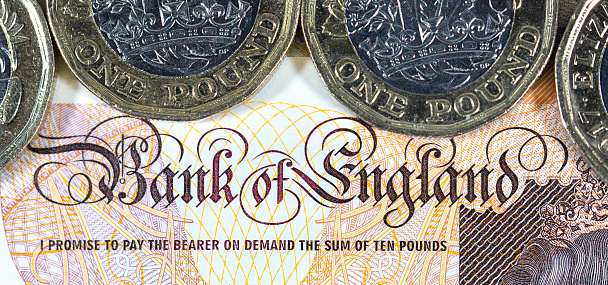BOE voted unanimously to leave the Bank rate unchanged at 0.1%. The asset purchase program also stayed at 745B pound in September. At the meeting, policymakers acknowledged stronger-than-expected recovery in the UK. Yet, they reiterated that the outlook remained highly uncertain as mainly brought about by the coronavirus pandemic. The members only noted that British pound fell on Brexit developments, without much elaboration. What sent the British pound lower after the announcement was that the minutes revealed that BOE continued to explore the possibility of adopting negative interest rates and will work with regulator regarding implementation in coming months.
On the economic assessment, policymakers acknowledged that “recent domestic economic data have been a little stronger than” projected in August. The central bank expects 3Q20 GDP to be around 7% below that is 4Q19″. This is “less weak than had been expected in the August Report”. Inflation is expected to be “slightly higher than expected” at the August report. Yet, it is going to to stay below 1% until early 2021.
Despite the improvement, the members added that “it is unclear how informative they are about how the economy will perform further out”. The coronavirus pandemic remains a key risk. As suggested in the statement, “the recent increases in Covid-19 cases in some parts of the world, including the United Kingdom, have the potential to weigh further on economic activity, albeit probably on a lesser scale than seen earlier in the year”. BOE repeated the assessment in the August Report that “there remains a risk of a more persistent period of elevated unemployment than in the central projection”.
– advertisement –
Globally, the central bank suggested that “indicators of global activity have been broadly in line with the Committee’s expectations at the time of the August MPC meeting”. Concerning Brexit, the members acknowledged the recent selloff of sterling as a result of the EU-UK negotiation stalemate. As usual, they did not discuss on the probability of no-deal Brexit.
On the monetary policy outlook, policymakers pledged that they would not “tighten monetary policy until there is clear evidence that significant progress is being made in eliminating spare capacity and achieving the 2% inflation target sustainably”. Members also had discussion about negative interest rates. After discussing the effectiveness of negative policy rates in August, the members further discussed “how a negative Bank Rate could be implemented effectively, should the outlook for inflation and output warrant it at some point during this period of low equilibrium rates”. It will, together with the Prudential Regulation Authority, begin “structured engagement” on the issue in the final three months of the year.negati
